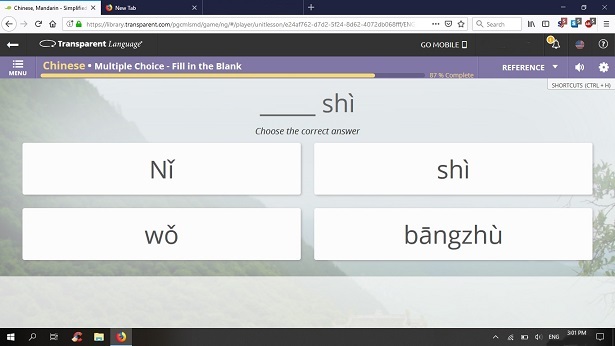Trismegistus (![[personal profile]](https://www.dreamwidth.org/img/silk/identity/user.png) lebateleur) wrote2019-02-23 02:51 pm
lebateleur) wrote2019-02-23 02:51 pm
Entry tags:
This is why people think language learning is hard.
Actually, language learning is not hard. When people say it is, they're almost talking about all the stuff that surrounds language learning, but not the process itself.
To master any language (even a first!) a learner needs to understand the material and then practice it. If a resource introduces something--a writing system, a verb conjugation, a grammar irregularity--without explaining it, many learners will give up in frustration: I don't get what's going on. Heaven help the learner if it introduces an element--spelling, conjugation, irregular verbs--incorrectly, because then they've absorbed something they don't even realise is a mistake and will have to spend time and effort and confusion to 1) realise it's wrong, and b) learn it again, correctly.
Which is why it's insane to me how shitty so many language-learning resources are--to say nothing of those created with self-study in mind. For instance, I dare anyone who's ever even briefly studied Chinese to tell me to tell me which of these four answers is correct.

I'm interested in seeing what people think, because program module uses spaced repetition, meaning it will keep lobbing the question at you until you give it the answer it likes.
これで以上です。
To master any language (even a first!) a learner needs to understand the material and then practice it. If a resource introduces something--a writing system, a verb conjugation, a grammar irregularity--without explaining it, many learners will give up in frustration: I don't get what's going on. Heaven help the learner if it introduces an element--spelling, conjugation, irregular verbs--incorrectly, because then they've absorbed something they don't even realise is a mistake and will have to spend time and effort and confusion to 1) realise it's wrong, and b) learn it again, correctly.
Which is why it's insane to me how shitty so many language-learning resources are--to say nothing of those created with self-study in mind. For instance, I dare anyone who's ever even briefly studied Chinese to tell me to tell me which of these four answers is correct.

I'm interested in seeing what people think, because program module uses spaced repetition, meaning it will keep lobbing the question at you until you give it the answer it likes.
これで以上です。
no subject
...without hanzi, aren't these all technically correct, depending on what you're trying to say? (like, I'm a pretty extreme beginner at Mandarin here but still...)
no subject
Even narrowing it down to only the translations introduced for the pinyin thus far in the course still leaves you with "ni" and "wo," which are both correct, both given as example construction in the lesson (i.e., "wo shi" and "ni shi"), and as you point out, "Ni" would appear to be the logical answer to an English speaker because it's capitalized and the question asks them fill in the first word in the phrase.
The only answer the program accepts as correct is "wo".
With no hanzi, no audio recording, and no other prompt or explanation, a learner with no knowledge of Chinese beyond the content introduced in this lesson is left with no explanation why "wo" is acceptable while "ni" isn't, and doubts about what they're missed when they thought they had a handle on the material.
It's inexcusably slopping for a resource that charges learners 30 USD a month to access.
no subject